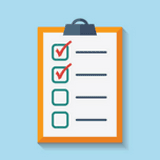News and Updates
Leasing vs. buying a car: What’s best for me?
If you’re in the market for a new car or truck, you’re likely weighing the options of leasing versus owning your next ride. Both leasing and buying have their benefits and drawbacks, so the right choice all depends on your budget, driving needs and lifestyle.
We’ve outlined some of the key factors to consider when deciding between leasing versus buying your next vehicle to help you determine which option is best for you.
Cost
Leasing: Your monthly lease payments will vary depending on the make and model, the length of the lease and other variables. Typically, monthly lease payments are low-interest and can be a good option for drivers on a budget.
Buying: Buying a new or used vehicle usually requires you to pay the entire cost in full at the time of purchase. If you have the budget to buy a vehicle outright, you’ll save on the interest, which might make more financial sense for you in the long run.
Age of vehicle
Leasing: If you’re someone who likes to drive a shiny new car every couple of years, leasing is a great option to regularly switch up your ride. You can also try out the latest vehicle technology and safety features just as they’re released.
Buying: Some drivers prefer the comfort and familiarity of driving the same vehicle for a number of years. If this sounds like you, buying may be a bitter fit.
Kilometre limits
Leasing: Your lease agreement will include a limit for the maximum number of kilometres you are allowed to drive. If you go over this limit, you could be charged a hefty penalty. Drivers who choose to lease a vehicle typically aren’t planning to regularly drive long distances.
Buying: If you have a long work commute or several road trip plans in the works, buying could be the better choice to avoid unwanted penalties. Keep in mind that the number of kilometres you put on your vehicle will impact its resale value.
Wear and tear
Leasing: Your dealership will expect you to return your leased car or truck in the same condition in which you received it. Excessive wear and tear could result in costly fees. If you decide to lease your vehicle you’ll need to take good care of it and stick to a regular servicing schedule.
Buying: Keeping your vehicle in good condition will help to extend the length of time you can safely drive it and will positively impact its resale value. However, you won’t have to worry about being faced with additional fees as you would if you were leasing.
Flexibility
Leasing: Sometimes plans change and you may have to end your lease agreement earlier than you planned. To do so you will typically have to pay an early termination fee in addition to any outstanding payments. Or, you’ll need to find someone who is willing to sign a lease takeover, in which case they will be responsible for the remaining lease.
Buying: Once you own your vehicle it is an asset that you can sell or trade in if you no longer want to drive it. If you’re unsure of what the next two to four years will look like for you, buying may be the better choice.
Customization
Leasing: Since you will eventually need to return your vehicle to the dealership, any customizations—like safety upgrades or cosmetic changes—will need to be reversed before your lease term is up.
Buying: As the owner of the vehicle you can make any customizations you want, so long as your car or truck still meets all safety requirements.
Ultimately, the choice is up to you. If you like to drive a new car every few years, don’t drive many kilometres and are trying to stick to a monthly budget, leasing may be the right choice. If you often drive long distances, are looking to make customizations to your vehicle and want to hang on to it for more than a few years, buying may be a better fit.
Does leasing vs. buying a car impact my insurance?
You’ll need car insurance regardless of whether your vehicle is leased or owned. Most lease agreements will stipulate what coverage you need to have in order to protect the vehicle. Typically, dealerships will require leased vehicles to have both comprehensive and collision insurance.
It’s important to talk to your insurance provider to ensure you have the coverage you need. If you have questions about your existing car insurance policy, contact your OTIP broker at 1-833-494-0090. If you’d like to get a quote for car insurance, connect with an OTIP broker today at 1-888-892-4935.







